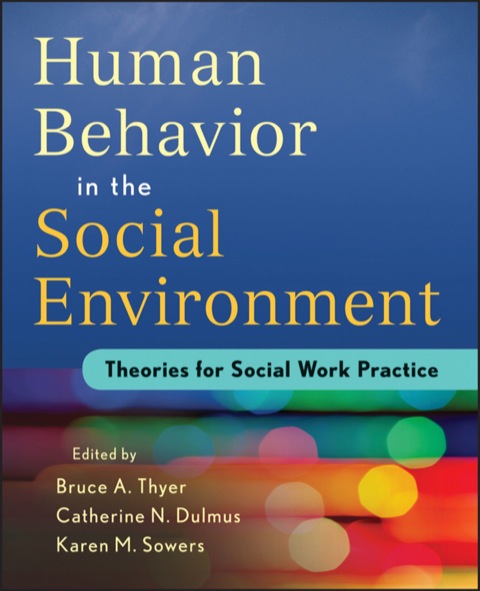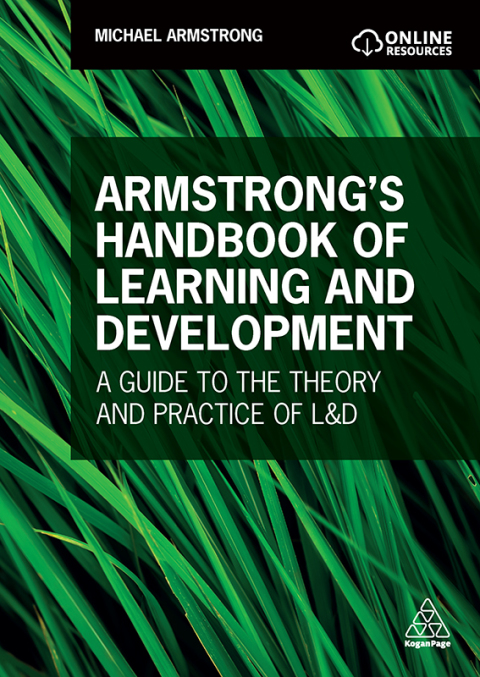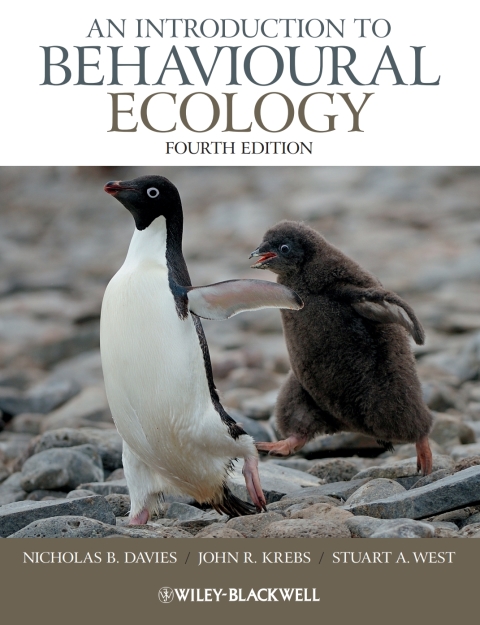Description
Efnisyfirlit
- Human Behavior in the Social Environment
- Contents
- Preface
- Acknowledgments
- About the Editors
- Contributors
- Chapter 1 Human Behavior and the Social Environment: Exploring Conceptual Foundations
- Scholarly and Professional Dilemmas Related to Human Behavior and the Social Environment
- Development of the Social Work Knowledge Base
- The Utility of Middle Range Theory
- Issues Related to Levels of Analysis
- Characterizing the Nature of the Relationship Between Persons and Their Environments
- Development of the Human Behavior and Social Environment Construct
- General Background
- Council on Social Work Education Standards
- Empirical Perspectives
- Debates Around the Human Behavior and the Social Environment Curriculum
- A Selection of Frameworks That Address Linkages Between Human Behavior and the Social Environment
- Life Course Perspectives
- Extensions of Life Course Approaches
- Life Course Approach: An Application
- Highlighting Historical Time and Place: Mid- and Late Adulthood
- Adolescence and Early Adulthood: Timing, Agency, and Opportunity
- Linked Lives: Infants and Young Children
- Cultural Understanding of Human Development
- Opportunity Framework
- Social Capital Theory
- Neighborhood Effects
- Institutional Theory
- The Social Environment: Key Concepts
- Structure and Process
- Elements of Structure
- Elements of Process
- Practitioner–Environment Interaction
- Frameworks for Linking Knowledge to Practice
- Risk and Resilience
- Stress and Coping
- Conclusion
- Key Terms
- Review Questions for Critical Thinking
- Online Resources
- References
- Chapter 2 Respondent Learning Theory
- Respondent Learning Processes
- Unconditioned Stimuli
- Conditioned Stimuli
- Timing Is Everything!
- Respondent Extinction
- Vicarious Conditioning
- Spontaneous Recovery
- Respondent Discrimination
- Sensitization
- Second-Order Conditioning (or Higher-Order Conditioning)
- Naturally Occurring Examples of Respondent Learning in Real Life
- Experimental Examples of Respondent Learning
- Experimentally Induced Pupillary Constriction
- Conditioned Sucking in Newborn Babies
- Respondent Conditioning of Private Events
- Examples of Respondent Learning of Psychosocial Problems
- Learned Social Anxiety
- Anticipatory Nausea Among Cancer Chemotherapy Patients
- Phobic Disorders
- Sexual Paraphilias
- Racism
- Using Respondent Learning in Social Work Practice
- Using Respondent Extinction
- Masturbatory Reconditioning
- Creating Conditioned Reactions
- Lamaze Training for Pregnant Women
- The Bell and Pad Device to Treat Enuresis
- Aversion Therapies
- Philosophical Foundations of Respondent Learning
- Key Terms
- Review Questions for Critical Thinking
- Online Resources
- References
- Chapter 3 Operant Learning Theory
- Historical and Conceptual Origins
- Basic Theoretical Principles
- Reinforcement
- Factors Affecting the Effectiveness of Reinforcement
- Secondary or Conditioned Reinforcement
- Schedules of Reinforcement
- Recent Research on Schedules of Reinforcement With Humans
- Extinction
- Punishment
- Stimulus Control
- Building Behavior by Shaping and Chaining
- Modeling and Imitative Behavior
- Advanced Theoretical Principles
- Rule-Governed Behavior
- Self-Control
- Recent Theoretical Developments
- Functional Analysis of Problem Behaviors
- Matching Law
- Stimulus Equivalence and Relational Frame Theory
- Relevance to Social Work Practice
- Uses in Assessment
- Uses in Intervention
- Critiques of the Operant Learning Approach
- Key Terms
- Review Questions for Critical Thinking
- Online Resources
- References
- Chapter 4 Cognitive-Behavioral Theory
- Relevance to Contemporary Practitioners
- Overview of Cognitive-Behavioral Theory
- Historical and Conceptual Origins
- Basic Theoretical Principles
- Mediational Model
- Information Processing
- Self-Regulation
- The Importance of Environment
- Advanced Theoretical Principles
- Core Beliefs
- Cognitive Errors
- Recent Theoretical Developments
- Relevance to Social Work Practice
- Uses in Assessment
- Uses in Intervention
- Evidence-Based Foundations
- Critiques of This Approach
- Key Terms
- Review Questions for Critical Thinking
- Online Resources
- References
- Chapter 5 Attachment Theory
- Historical and Conceptual Origins
- Advanced Theoretical Principles
- Recent Theoretical Developments
- Relevance to Social Work Practice
- Uses in Assessment
- Uses in Intervention
- Critiques of This Approach
- Key Terms
- Review Questions for Critical Thinking
- Online Resources
- References
- Chapter 6 Psychosocial Theory
- Developmental Theory
- Historical and Conceptual Origins
- Freudian Origins
- Erikson’s Historical View
- Basic Theoretical Principles
- Psychosocial Theory
- Epigenetic Principle
- Psychosocial Crisis
- Ego Qualities Versus Core Pathologies
- Radii of Significant Relationships
- Psychosocial Stage Theory
- Advanced Theoretical Principles
- Recent Theoretical Developments
- Identity Formation
- Critical Life Events
- Relevance to Social Work Practice
- Uses in Assessment
- Uses in Intervention
- Life Review
- Evidence-Based Foundations: Erikson on Erikson
- Critiques of This Approach
- Gilligan on Erikson
- Paradigm Shifts
- A Social Work Context on Development
- Key Terms
- Review Questions for Critical Thinking
- Online Resources
- References
- Chapter 7 Person-Centered Theory
- Historical and Conceptual Origins
- Basic Theoretical Principles
- Human Nature
- The Three Core Conditions Sustaining Person-Centered Theory and the Role of the Therapist
- Personality
- Stages of the Therapeutic Process
- Advanced Theoretical Principles
- Conceptual Constructs
- Personality
- Stages of the Therapeutic Process
- Recent Theoretical Developments
- Relevance to Social Work
- Assessment
- Intervention
- Evidence-Based Foundations
- Theory
- Practice
- Research
- Critiques of This Approach
- Key Terms
- Review Questions for Critical Thinking
- Online Resources
- References
- Chapter 8 Genetic Theory
- The Eukaryotic Cell
- Chromosomes
- Reproduction
- Mitosis
- Mendelian Genetics
- The Process of Meiosis
- Meiosis I
- Meiosis II
- Pedigrees
- DNA and RNA
- The Hereditary Information Molecules
- The Genetics of Gender
- Sex-Linked Genetics
- Genetic Counseling
- Genetic Engineering
- The Human Genome Project
- Conclusion
- Key Terms
- Review Questions for Critical Thinking
- Online Resources
- References
- Chapter 9 Ecosystems Theory
- The Ecosystems Perspective in Social Work
- Origins of the Perspective
- The Rationale for Ecosystems in Social Work
- Systemic Versus Linear Perspectives
- The Conceptual Roots of the Ecosystems Perspective
- Ecosystems: Science or Metaphor?
- Ecological Theory
- General Systems Theory
- Recent Advances in Systems Thought
- Evaluating the Ecosystems Perspective
- Connectedness and the Transactional Focus
- Utility for Assessment
- Returning to the Science
- Mapping Practice
- Conclusion
- Key Terms
- Review Questions for Critical Thinking
- Online Resources
- References
- Chapter 10 Small Group Theory
- Definitions
- History and Conceptual Origins
- Small Group Practice and Professionalization
- Theoretical Underpinnings of Small Group Work
- Basic Theoretical Principles
- Systems Theory
- Psychoanalytic Theory
- Social Learning Theory
- Recent Theoretical Developments
- Cognitive-Behavioral Model
- Mutual Aid Model
- Relevance to Social Work Practice
- Uses in Assessment
- Uses in Intervention
- Multicultural Group Work
- Evidence-Based Foundations
- Critiques of This Approach
- Key Terms
- Review Questions for Critical Thinking
- Online Resources
- References
- Chapter 11 Family Systems Theory
- Historical and Conceptual Origins
- Basic Theoretical Principles
- Advanced Theoretical Principles
- Recent Theoretical Developments
- Relevance to Social Work Practice
- Uses in Assessment
- Uses in Intervention
- Evidence-Based Foundations
- Critiques of This Theory
- Key Terms
- Review Questions for Critical Thinking
- Online Resources
- References
- Chapter 12 Organizational Theory
- Organizational Behavior
- Social Organization
- Social Organizations
- Levels of Social Organization
- Formal Organization
- The Importance of Formal Organizations
- Historical and Conceptual Origins
- Early 20th Century
- 1940s and 1950s
- 1980s and 1990s
- Basic Theoretical Principles
- Principle 1: Organizations Are Social Institutions
- Principle 2: Organizations Have a Structure
- Principle 3: Organizations Have Formal and Informal Systems
- Principle 4: Organizations Have a Culture
- Principle 5: Organizations Have a Life Cycle
- Principle 6: Organizations Require Leadership and Management
- Principle 7: Organizations Are of Different Focal Types
- Principle 8: Organizations Sometimes Produce the Opposite of Their Intended Goal
- Principle 9: Organizations Are Central to Meaning Making for Citizens in Industrial Societies
- Advanced Theoretical Principles
- Interorganizational Theory of Organizational Differentiation
- Organizational Environments
- Issues of Organizational Effectiveness
- Linear (More) Versus Multivariate Concepts of Success and Excellence
- The Problems of Organization Superperformance and Malperformance
- Organizations Can Enhance or Exhaust the Human System
- Positive Organizational Scholarship
- Sick Organizations
- Recent Theoretical Developments
- Emotion Work in the Workplace
- New Approaches to Imagining Organizations
- Organizational Kaleidoscopes: Disciplinary Perspectives
- Executive Derailment and Calamity
- Organizational Decision Making
- Diversity and Organizations
- Relevance to Social Work Practice
- Overall Social Work Demographics
- Nonprofit Sector
- Trends in the Nonprofit Social Service Sector
- Uses in Assessment and Intervention
- Evidence-Based Foundations
- Critiques of This Approach
- Conclusion
- Key Terms
- Review Questions for Critical Thinking
- Online Resources
- References
- Chapter 13 The Potentially Harmful Effects of Theory in Social Work
- Some Harmful Effects of Bad Theory
- Teaching Bad Theory Wastes Time in Education and Training
- Teaching Bad Theory Detracts From Time Spent Teaching Evidence-Based Content
- Investigating Bad Theory Wastes Researchers’ Time and Resources
- Basing Practice on Bad Theory Can Result in Ineffective or Harmful Practices
- Theory Can Place Intellectual Blinders on Practitioners and Researchers
- Legitimate Research Aimed at Testing Theory May Degenerate Into Attempting to Prove That a Given The
- These authors bluntly concluded:
- Theory Can Promote the Rise of Authority Figures and of Cult-Like Phenomena
- Theory Can Promote Division Between Researchers and Practitioners
- Where Can We Go From Here?
- What Are Alternatives to Basing Education, Practice, and Research Primarily on Theory?
- Alternatives in Social Work Education
- Alternatives in Social Work Practice and Research
- Conclusion
- Key Terms
- Review Questions for Critical Thinking
- Online Resources
- References
- Author Index
- Subject Index






Reviews
There are no reviews yet.